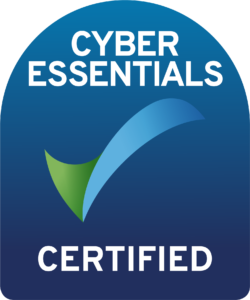
HaloITSM Guides
Documentation to assist with the setup and configuration of the HaloITSM platform
Scheduled Tickets
In this guide we will cover:
- What are Scheduled tickets?
- Creating Scheduled tickets
- Adding From Client Level
What are Scheduled tickets?
Using scheduled tickets can inform your agents of recurring events and monitoring to be done. This will generate a ticket at a set time with a given interval (such as every month/year/week etc). It is possible to pre-format the scheduled ticket with set field values. This is useful for regular/repeat tasks such as server/asset maintenance, allowing you to have tickets generated for all selected assets when maintenance is due. Tickets will create automatically on the chosen schedule, the attributes of the ticket, such as who the end user is, what assets are associated, associated child tickets can also be configured on the schedule.
Admin Guides:
Related Articles:
For a detailed list of each configuration option and the description of what it does, refer to the Admin Guide.
Creating Scheduled tickets
To create scheduled tickets head to configuration > tickets > scheduled tickets > new.
Fig 1. Scheduled Tickets Module
Fig 2. Scheduled Ticket Creation
First give this ticket a name, this will be the nominal title in the scheduled ticket list (this is not the title or details of the end ticket).
Now you will need to set the schedule the ticket(s) is created on.
Schedule
How you configure the schedule will depend on the schedule type chosen.
Start date and repeat period
When chosen you will be able to choose a date for the schedule to begin on, then choose how often the schedule repeats. Various repeat periods can be chosen from including:
- weekly
- Monthly
- Quarterly
- 6 Monthly
- Yearly
- 2,3,4,5,10 Yearly
This is useful when you would like tickets to always be created at the same time (start of the week/month) at set intervals.
Fig 3. Start date and repeat period setup
Selected Days of the Week
When chosen you will be able to choose what days of the week you would like tickets to create and how often you would like them to create, at what interval.
Fig 4. Configuring The Schedule
This is useful when you would like tickets to be created on specific days of the week, such as when sending regular weekly or daily reports and is a WYSIWYG system. The calendar will highlight in blue the days tickets will be created on.
Day of the Month and Repeat Interval
When chosen you will be able to choose a specific day of the month for tickets to be created on, and configure a repeat schedule for this. So tickets will be created at the same time of the month, every month, or every other month, for every year, etc.
Fig 5. Using Day of The Month With a Repeat Schedule
This screen is a little more involved with "Send on this month" being the calendar month's number
- 0=Every Month, 1 = January, 2 = February etc.
Repeat months determines how often tickets are created.
Repeat years determines how many years the schedule repeats.
Send on this month determines which month the tickets creates on.
It should be noted that If "Send on this month" is 0 then the schedule will ignore repeat months. It should also be noted that if 'Send on This Day Of the Month' is outside of the date parameters (31st of Feb for example) then the ticket will be sent on the last day of the month.
Setting the end users of the ticket
Under the 'Users' tab you can set who the end users of the tickets created will be.
If this schedule only needs to create one ticket, just choose here who the end user of the ticket is.
If you would like a ticket to be created for every user selected here, set the 'Ticket creation' (under the Schedule tab) to be 'Create a Ticket for every user linked to this schedule'.
If you would like the users that tickets are created for to change dynamically you can use a SQL query to determine which users have tickets created for them in this schedule.
Fig 6. Determine who the end users of the ticket(s) is
Ticket Values
The values tab holds the pre-populated fields which will appear on the ticket.
Give the ticket a ticket type/template, summary and details as you would when you manually add a new ticket and select the default status, team and agent as necessary.
Fig 7. Status, Team and Agent
Carry on down the values list as if it were any other ticket with the same ticket type.
Set To-Do lists
Click on the "To-Do Lists" tab and add any necessary to-do tasks in here.
Related Assets
If you would like the scheduled ticket to have assets related to it upon creation (useful when the task is for asset maintenance/events) you can do this under the 'Related Assets' tab. All assets added here will be related to the ticket upon creation.
If you would like a ticket to be created for every asset selected here set the 'Ticket creation' (under the Schedule tab) to be 'Create a Ticket for every asset linked to this schedule'.
If you would like the assets tickets are created for to change dynamically you can use a SQL query to determine which assets are linked to this schedule therefore which assets tickets are created for (from v2.196+).
Child Tickets
If you would like any child tickets to be created under this ticket head to the 'Children' tab and choose the templates to be used for the child tickets to be created.
Your ticket will now create on the schedule you have set with all the pre-populated values you have pre-set.
Note: If you have applied a template to the scheduled ticket (under values tab), any child tickets on the template will be created too in addition to the templates assigned in the 'children' tab (v2.168+).
Adding From Client Level
You can add scheduled tickets from the client screen, there is a tab called "Scheduled Tickets" (From The Navigation Menu Click on The Clients/ Customers Area).Fig 8. Scheduled Tickets Tab at Client Level
Popular Guides
- Asset Import - CSV/XLS/Spreadsheet Method
- Call Management in Halo
- Creating a New Application for API Connections
- Creating Agents and Editing Agent Details
- Departments and Teams
- Halo Integrator
- Importing Data
- Multiple New Portals with different branding for one customer [Hosted]
- NHServer Deprecation User Guide
- Organisation Basics
- Organising Teams of Agents
- Step-by-Step Configuration Walk Through



